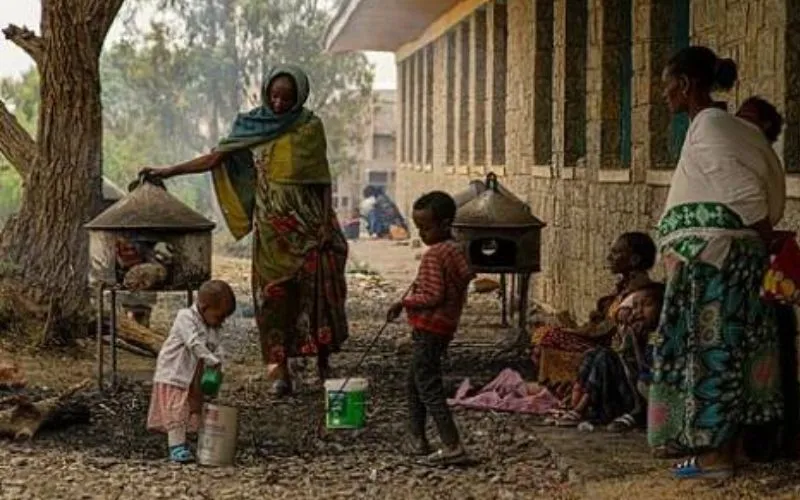He says, “Healing from the traumas of war, recovery on a human and physical level, building peace, are the salient points on which we are focusing to deal with the devastation and violence that the population of Tigray continues to suffer due to the conflict between the regional government and the federal government of Ethiopia.”
Violent conflict in the Tigray region started in November 2020 when the Tigray People’s Liberation Front (TPLF) allegedly launched an attack on Ethiopia’s Federal Government Army base in the region.
TPLF and people in the Tigray region were reportedly opposed to Prime Minister Abiy Ahmed’s bid to centralize power in Africa's second most populous country.
In November 2022, the Ethiopian government and TPLF signed a peace agreement in Pretoria, South Africa, pledging to “permanently silence the guns and end the two years of conflict in northern Ethiopia”.
Despite the peace agreement, not much seems to have changed as forces expected to withdraw from the region have reportedly not adhered to the peace agreement.
In the July 8 Agenzia Fides report, Bishop Medhin says that the war has resulted in the looting and damage of the 36 out of the 53 Catholic Educational institutions in the region thereby affecting learning.
“Of those closed schools’ buildings, some in urban areas have been transformed into IDP camps,” he says, adding, “80 percent of the healthcare facilities have been destroyed in the region, but now slowly being reactivated.”
The Local Ordinary of the Eparchy of Adigrat since his Episcopal Consecration in January 2002 decries insecurity on the country’s roads, a situation that has necessitated the use of flights in delivering supplies.
Flights, he says, “are very expensive and therefore not always accessible to most people.”
“There are currently over one million internally displaced people living without any adequate infrastructure. In four years, there have been well over one million deaths,” the Catholic Church leader says.








